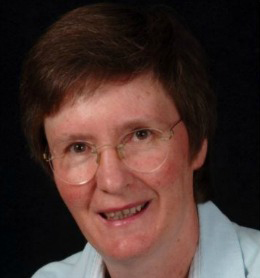As South Africa prepares to ease restrictions aimed at preventing the spread of Covid-19, a North-West University (NWU) virologist, Prof Albie van Dijk, shares her views on the country’s fight against the pandemic.
Prof Van Dijk is a lecturer and researcher in the Biochemistry subject group at the NWU’s campus in Potchefstroom, and her research focus is on affordable recombinant vaccines against rotavirus diarrhoea.
This research area may ultimately contribute to the development of antiviral strategies and new therapies, similar to the approaches and techniques currently used throughout the coronavirus therapy and vaccine developments.
In a recent media interview, Prof van Dijk said that the government’s restriction strategy was the fastest and most decisive action the country could have taken in the fight against the pandemic. According to her, the restriction period allows for five important tasks to be concluded. These tasks are:
- To better prepare for the large number of patients that can be expected, so that struggling clinics and hospitals are not overwhelmed during the coming winter months.
- To allow anti-coronavirus therapeutics to be identified, developed, tested and made available. According to Prof Van Dijk this can take up to 12 months at the earliest.
- To develop vaccines. In her opinion, South Africa would probably not get such vaccines before five years, since other countries will provide for themselves first.
- To determine if HIV/Aids antiviral drugs may also slightly inhibit the SARS-CoV-2 virus replication.
- To determine whether South Africa’s relatively young population (27,6 years) will become less ill.
According to Prof Van Dijk the fact that no one knows exactly why people react so different to the virus necessitates “enormous research efforts” to bring more clarity over time.
“For now the virus is here to stay and circulate. Everyone will be exposed to it at some point. Hopefully in a year of two we would already know a lot more and there may already be effective antivirals that can be used to treat the masses of infected people,” said Prof Van Dijk.
* As from 1 May, the country’s risk-adjusted restriction strategy will move from the current Level 5 scenario to Level 4. The latter will allow certain industries to resume operating, people to exercise under specific conditions, and an increased number of goods to be sold, including cigarettes.

Prof Albie van Dijk.
